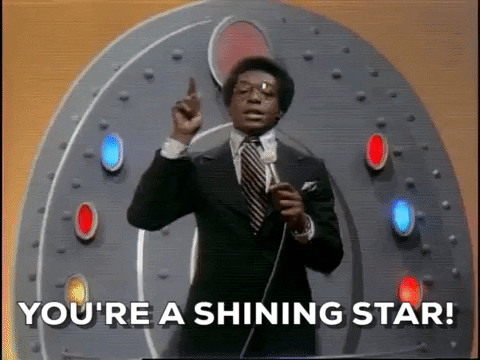Rethinking Excellence
Is striving toward Black Excellence a hindrance?
At the start of this year, I created a vision board for the first time since 2020. In the past, I brought my goals and desires to fruition by manifesting them through collage work from magazine clippings, so I wanted to try it again but with a different approach. I downloaded the Canva app and created an iPhone wallpaper with images that symbolize what I want to call into my life and words to remind me of what to strive towards: consistency, healing, confidence, and excellence. All four of these words reflect this current season of my life. Consistency is what led me to complete my first short film. Healing generates my ongoing evolution and fosters healthier relationships. Confidence is crucial in overcoming personal and creative challenges. Lastly, excellence is my primary goal in all of my creative pursuits. I didn't spend much time thinking about why I chose these words; they all came from a subconscious place. As I look at these words every day, their meanings begin to take a different shape. Excellence, in particular, feels much more restricting and far less significant than it did to me a month ago.
In the thick of Black History Month, when we're all Issa Rae at the 2017 Emmys, there is a lot of questionable messaging within the praise of Black excellence that is hard not to internalize as an unknown Black artist who strives towards yet is not quite excellent. Namely, excellence is often defined by accomplishments awarded or achieved within institutions and systems not created for Black folks to thrive in. Even when our community can agree that a body of work is excellent, we feel slighted when it is not recognized outside our community. We detest and call out moments when impactful work created by Black artists has been overlooked and snubbed. We refuse to stand by idly when we are told our excellence is not worthy of being awarded by those who have the power to oppress us in far more sinister ways than shutting us out of white-led award ceremonies. There is no right or wrong way to feel about this. It is simply the reality of being part of a people who descend from folks who built a country for free, created the culture, and have never truly been rewarded for that.
Ruminating on "excellence" and what it means for me as a Black woman artist brought about a lot of personal unpacking. The hardship I endured due to systemic racism/sexism and generational trauma were the impetus for my fixation with excellence. For most of my adulthood, I thought that if I could "make something" of my life, all of my pain and trauma would've meant something, that I'd have a stronger sense of worthiness.
Keep reading with a 7-day free trial
Subscribe to LaChelle Rising to keep reading this post and get 7 days of free access to the full post archives.



